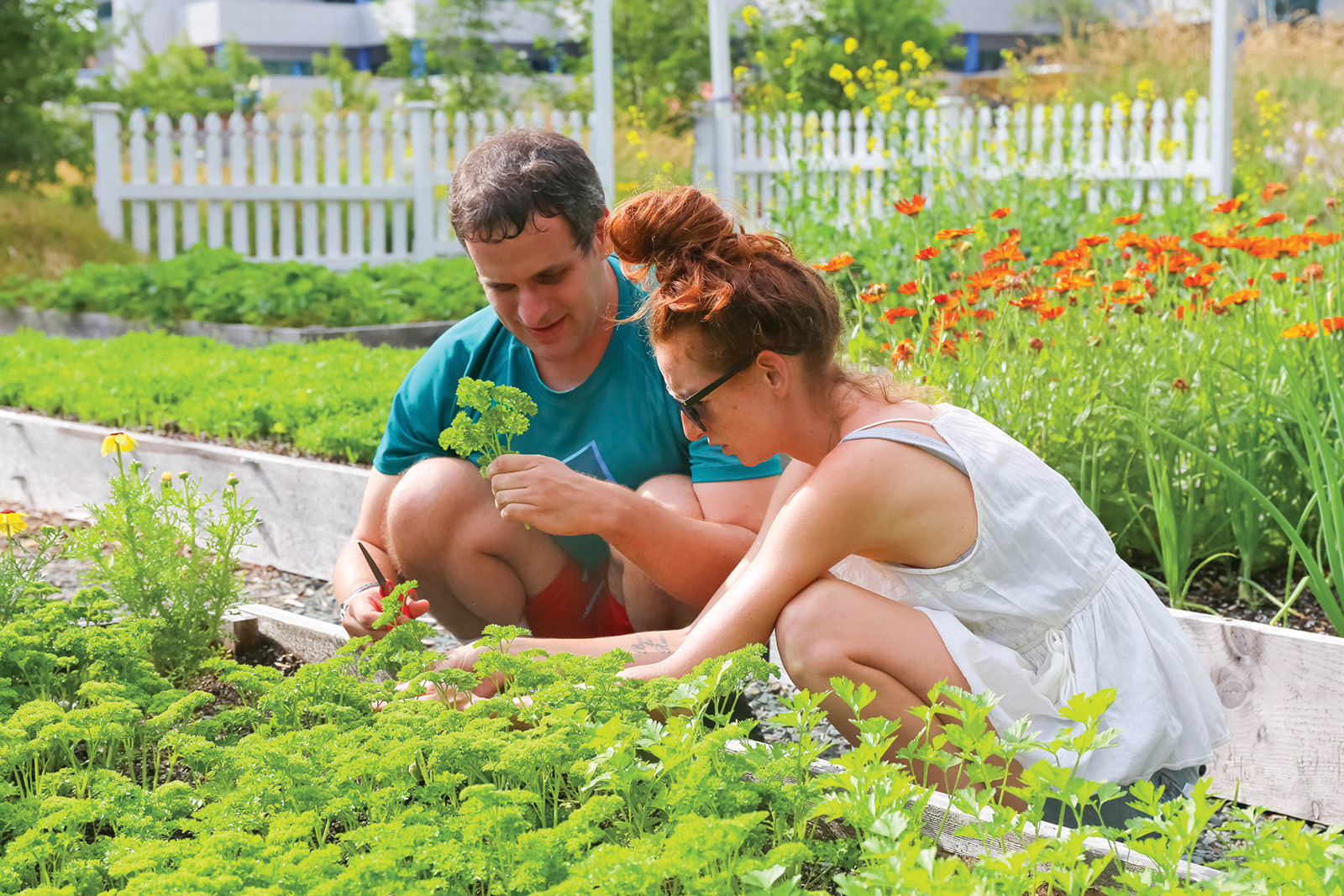The Autism Society of Newfoundland and Labrador’s sow & grow program is the latest transitions initiative to help those on the spectrum develop confidence & skills in the workforce
====
For those on the autism spectrum, taking the plunge to integrate into the workforce can be a daunting task. The Autism Society of Newfoundland and Labrador (ASNL) strive to make that transition as smooth and seamless as possible. Their latest initiative plants those seeds for a successful career, and indeed seeds of an entirely different nature.
Good Roots Gardening
 ASNL’s Sow and Grow program is the latest of the organizations Good Roots Gardening initiative. The program offers ready to plant garden beds delivered directly to private homes or businesses, with seed packages varying to reflect the unique climate of Newfoundland and Labrador.
ASNL’s Sow and Grow program is the latest of the organizations Good Roots Gardening initiative. The program offers ready to plant garden beds delivered directly to private homes or businesses, with seed packages varying to reflect the unique climate of Newfoundland and Labrador.
“We provide the wooden frame, we provide all the soil and we provide the customer with packets of seeds to plant themselves,” shared Jeff Ronan, Master Gardener and Good Roots Gardening Coordinator. “We come in and we do all the installation and we leave the customer with a ready to sow and grow green vegetable bed.”
The Good Roots Gardening program was born from ASNLs Transitions Program, which helps those on the autism spectrum with pre-employment skill development.
“Transitions is a year long pre-employment skill development program for adults on the autism spectrum who are interested in learning more about employment and are showing interest and wanting to be involved in their community but have some kind of barrier or difficulty in doing so,” shares Megan Marshall, Transitions Coordinator for ASNL. “So it’s a fully funded yearlong program through the Department of Advanced Education and Skill and we cycle six people, soon to be nine, through this year long program.”
The Good Roots Gardening effort began almost of convenience. With the Autism Society Centre in St. John’s located on an old farm, the team set to work building a small community garden. Today there’s a closed loop food production system on site which strives towards promoting food sustainability.
“One of the biggest pieces that we do is volunteerism in the community,” says Marshall. “The volunteering piece allows my participants to generalize and practice the skills that they’re learning on site in sort of in class session based work into the real world where there are time management expectations and adhering to a schedule and listening to other supervisors other than myself or Jeff. Real world, real practice. 
‘From the ground up’
“Because we’re on this gorgeous property and we have this ever growing farm component I’d say about five months out of the year transitions is heavily involved in the operation of the farm. So they learn basically from the ground up. When they start in September it’s harvest season and they go right through until the spring of course where they are the ones that are planting everything and then they clue up at the end of August. So they do get to see a complete growth cycle as part of their programming year.”
Volunteerism is only one component of the transitions program, as three months of the program see participants paid to work on site.
 “For most people that’s the first job that they’ve ever had,” says Marshall
“For most people that’s the first job that they’ve ever had,” says Marshall
“And we have had six, eight, maybe even 10 people go on to get full or part time employment in our community. Real places, really great organizations in their own right, are seeing that these kids have the skill set and have the experience and they go on to get meaningful employment, which is the whole point.”
Transitions initiatives like the Good Roots Program provide an essential service for those in the autism spectrum, allowing for a warm, inclusive environment to learn and acclimatize to real world jobs that could lead to thriving careers in the workforce. But it goes much further than dollars and cents.
‘Achievable goals’
“It’s very successful for a number of reasons. The first is that people find their tribe. They feel included and valued and listened to,” Marshall admits. “They’re learning and being successful in small groups where we set them up to be successful. Everything is planned out really efficiently so that people have achievable goals that they can meet and smash really. And because we put people right out into the community they feel valued by their peers as well and the community at large is seeing that the autism diagnosis doesn’t mean that people can’t be effective and a part of their world.”
For more on ASNL’s Good Roots Gardening, Sow and Grow and other transitions programs visit autism.nf.net. Donate today to help nurture in the potential of all those who abide by the ASNL’s services.
